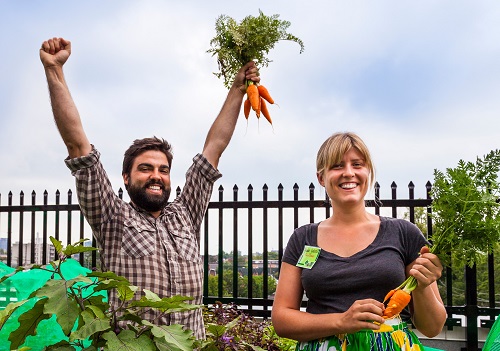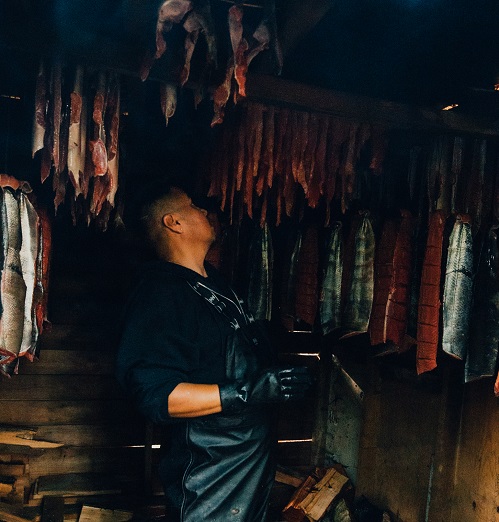Beginning with a small group of philanthropists and changemakers 20 years ago, Tides Canada has always asked the question: “How can we build a more just Canadian society and healthy planet?”
Our journey’s beginnings found us in BC’s Great Bear Rainforest, by supporting historic First Nations-led conservation agreements. Since then, we have achieved a regional presence in Manitoba, Northern Canada, Western Canada, and Ontario, with programs, funder collaboratives, over 60 community-led projects on our Shared Platform, and host to 150 donor-advised funds all environmentally and socially invested.
MakeWay supports sustainable food initiatives from coast to coast to coast, from remote Northern Manitoba communities to inner-city neighbourhoods in Toronto. Photo credit: Laura Berman.
Tides Canada is known for all this, so why on earth would we want to change our name and lose that hard-earned recognition?
The truth is, we have loved being Tides Canada, and no organization takes on a name change lightly, but it was clear that the time had come to be defined by ourselves and not others.
Since coming on board as CEO a year ago, I’ve listened to those inside and outside the organization and asked real questions about our purpose. It has indeed been a challenge for many to understand all that we do as a public foundation and national charity: a shared platform, philanthropy, donor advised funds, impacting investing, just to name a few.
Many people expressed confusion between Tides Canada and Tides US, assuming we are the same organization. When Tides Canada was founded twenty years ago, its founders were inspired by the Tides US foundation model, hence the name. Since then, the organizations have grown into distinct entities with no legal or governance ties.
Inside a salmon smokehouse in Bella Bella, on traditional Heiltsuk territory. Photo credit: Louise Whitehouse, courtesy of MakeWay
It became crystal clear that we needed to better tell our story and find our own name. We are more than an organization providing neutral services to the charitable sector, we are very clear about our purpose: to help nature and communities thrive together.
The new MakeWay name reflects the momentum of change that this organization stands for.
We are making way for community-led projects, like the Nawalakw Culture Project, a healing centre focused on immersing youth in their native Kwak’wala language and the culture and traditions of their ancestors. We are making way for a network of partners that share knowledge, skills, and resources for wider impact. We are making way for resilient economies, Black and Indigenous lives, nature’s resurgence, and cultures of care.
As MakeWay, we will continue to support our incredible partners, who under the most challenging of circumstances right now are finding innovative ways to serve their communities during the Covid-19 pandemic. We will also ensure that our philanthropic partners are able to be responsive to these evolving needs and provide the necessary tools for everyone to collaborate successfully together.
We’re excited to begin our journey as MakeWay, building momentum for change at a time when it has become all too clear that our current systems are no longer working. This moment is asking of us all to lead differently – both courageously and compassionately. Let’s make way for what’s possible.
Joanna Kerr is the CEO of MakeWay. She has dedicated her career to advancing social justice and women’s rights, a healthy environment, and strong civil society. Prior to joining MakeWay in 2019, Joanna led Greenpeace Canada as Executive Director, working to stop climate change and protect precious biodiversity while supporting Indigenous rights. She served as the first female Chief Executive of ActionAid International working in 50 countries with the most marginalized communities to tackle inequality. She also led the Association for Women’s Rights in Development, transforming it into one of the most significant global feminist conveners and influencers on funding for gender equality. She currently serves as the Chair of Equality Fund, Canada’s global fund for women.



